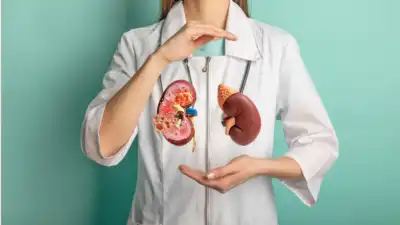Kidney disease is a common health condition, affecting thousands of individuals every year. The severity of kidney disease is variable, while those with mild to moderate renal dysfunction can be managed with medications , patients with severe renal dysfunction may need renal replacement therapy like dialysis.
Kidney damage can be temporary like in Acute Kidney Injury (AKI) where the kidney damage is due to a reversible cause like dehydration or toxins – In such patients with severe renal damage dialysis is a temporary measure till the renal function recovers. Such patients do not need a renal transplant.
However patients with Chronic Kidney Disease (CKD) who have had a progressive worsening of their renal functions may progress to End Stage Kidney Disease (ESKD) – Such patients will need regular dialysis as their renal functions are unlikely to recover. In patients with ESKD, Renal transplant is the best available treatment modality as the new kidney replaces the renal function of the non functioning kidneys and the patient does not need dialysis after renal transplant.
In other words patients with ESKD need to be on dialysis until they can undergo a renal transplant.
Some patients who are very ill may not be fit for a renal transplant and hence may be managed with dialysis only. However the Achilles heel of renal transplant is the availability of suitable renal donor. A living donor must ideally be related to the patient and have same blood group as the patient or have O group blood. Moreover the donor must have no chronic illness like diabetes and be fit enough to lead a normal life with single kidney after donating one kidney – hence a living renal donor undergoes a battery of tests to evaluate fitness for renal donation.
Patients who do not have a suitable living renal donor may be considered for a cadaveric donor. However the number of patients on waitlist for transplant far outnumbers the number of available cadaveric donors. Though the awareness about cadaveric organ donation is improving among the general public due multiple government and media interventions – still more activity is needed in this area.
Dialysis or Kidney Transplant?
Choosing whether you should go for dialysis or kidney transplant in ESKD is based on several factors . For instance, dialysis is more suitable as an immediate treatment for failed kidneys. It is a non-surgical procedure and does not depend on donor availability. Moreover, it is the best treatment modality for ESKD individuals who do not fall in the safe category for getting a transplant.
